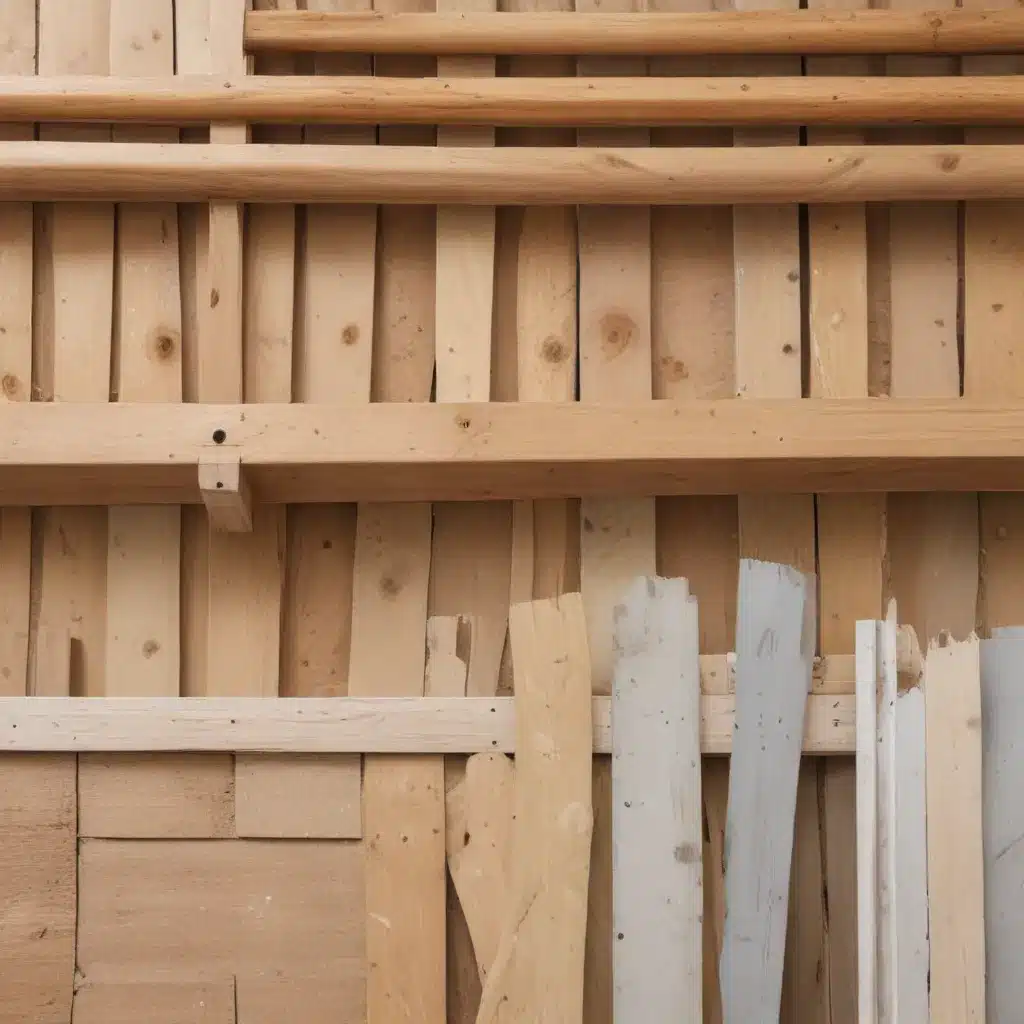
As a homeowner embarking on a renovation, you have a unique opportunity to make sustainable choices that positively impact the environment while transforming your living space. Sustainable sourcing – the practice of procuring materials, products, and services in an ethical and eco-friendly manner – is a crucial element of any responsible home improvement project.
Eco-Friendly Flooring
Hardwood floors have long been a classic choice, but many modern homeowners are exploring renewable flooring options that are kinder to the planet. Bamboo, for example, is a highly durable and rapidly renewable grass that can provide a warm, natural aesthetic. Cork flooring, made from the renewable bark of cork oak trees, is another sustainable alternative that offers excellent insulation and comfort underfoot.
If you’re seeking a lower-maintenance option, luxury vinyl plank (LVP) flooring has emerged as a popular choice. Many LVP products are now made with recycled content and can be installed without adhesives, reducing waste. Ceramic and porcelain tiles are also worth considering – these durable materials can be sourced locally and contain a high percentage of recycled content.
Renewable Countertops
Kitchen and bathroom countertops are another area where sustainable sourcing can make a significant impact. Quartz, an engineered stone made from crushed quartz crystals and resin, is a durable and low-maintenance option that eliminates the need for harsh sealants or treatments. Recycled glass countertops, crafted from reclaimed glass bottles and jars, offer a unique and eco-friendly aesthetic.
For a more natural look, consider soapstone, quartzite, or recycled paper composite countertops. These materials are often sourced locally and contain a smaller carbon footprint compared to traditional granite or solid surface options.
Energy-Efficient Windows
Upgrading your home’s windows can have a substantial impact on energy efficiency and comfort. Triple-pane windows with low-E coatings can significantly improve insulation, reducing heating and cooling costs. Fiberglass and vinyl window frames are also more energy-efficient and durable than their aluminum counterparts.
When sourcing windows, look for products that have earned the ENERGY STAR® certification, indicating they meet strict energy-efficiency guidelines. Additionally, consider the R-value (a measure of thermal resistance) and U-factor (a measure of heat transfer) to ensure you’re selecting the most effective windows for your climate.
Local Suppliers
One of the cornerstones of sustainable sourcing is supporting your local economy. Seek out regional material suppliers, lumber yards, and specialty retailers who can provide high-quality, locally-sourced products. Not only does this reduce the carbon footprint associated with long-distance transportation, but it also helps strengthen your community’s economy.
Connecting with local artisans, craftspeople, and small businesses can also be a rewarding way to source unique, bespoke items for your renovation. These vendors often take great pride in their work and may be able to customize pieces to fit your specific needs.
Responsible Manufacturers
When selecting materials and products for your renovation, research the environmental practices of the manufacturers. Look for companies that prioritize sustainability, energy efficiency, and responsible sourcing in their operations. Third-party certifications, such as LEED, WELL, or the Living Building Challenge, can help you identify manufacturers that are leading the way in sustainable production.
Transparency in Procurement
Transparency is key when it comes to sustainable sourcing. Reputable vendors should be able to provide detailed information about the origin, manufacturing processes, and environmental impact of the products they sell. Don’t be afraid to ask questions and request documentation, such as environmental product declarations (EPDs) or life cycle assessments (LCAs), to ensure you’re making informed decisions.
Carbon Footprint Reduction
By prioritizing local, eco-friendly materials and products, you can significantly reduce the carbon footprint associated with your renovation project. Transportation emissions, embodied energy (the energy required to extract, manufacture, and transport materials), and waste generation are all areas where sustainable sourcing can make a meaningful difference.
Waste Management Strategies
Sustainable sourcing also extends to responsible waste management during your renovation. Work with your contractor to minimize construction waste, recycle as much as possible, and donate gently used materials to local organizations or charities. Some municipalities even offer recycling programs specifically for building materials, so be sure to research your local options.
Water Conservation Practices
In addition to reducing your carbon footprint, sustainable sourcing can also help you conserve precious water resources. Look for water-efficient plumbing fixtures, low-flow showerheads, and drought-tolerant landscaping materials to ensure your renovation aligns with best practices for water conservation.
Healthy Indoor Air Quality
The materials and finishes you choose for your renovation can have a significant impact on your home’s indoor air quality. Opt for low-VOC paints, formaldehyde-free cabinetry, and natural, non-toxic finishes to create a healthier living environment for you and your family.
Biophilic Design Elements
Incorporate biophilic design – the concept of bringing nature into the built environment – by sourcing natural stone, live-edge wood, and other organic materials that connect your renovation to the natural world. These elements not only contribute to a more sustainable and visually appealing space but can also have a positive impact on your overall well-being.
Accessibility and Inclusivity
When planning your renovation, consider the needs of all occupants, including those with mobility, sensory, or cognitive disabilities. Sourcing accessible hardware, universal design features, and inclusive materials can ensure your home is welcoming and functional for everyone.
By embracing sustainable sourcing practices, you can transform your home while making a meaningful contribution to the health of the planet and your community. As an experienced home improvement consultant, I encourage you to explore the wealth of eco-friendly options available and to prioritize transparency, ethics, and environmental stewardship throughout your renovation journey. Visit Reluctant Renovator for more expert insights and practical guidance on sustainable home improvement projects.



